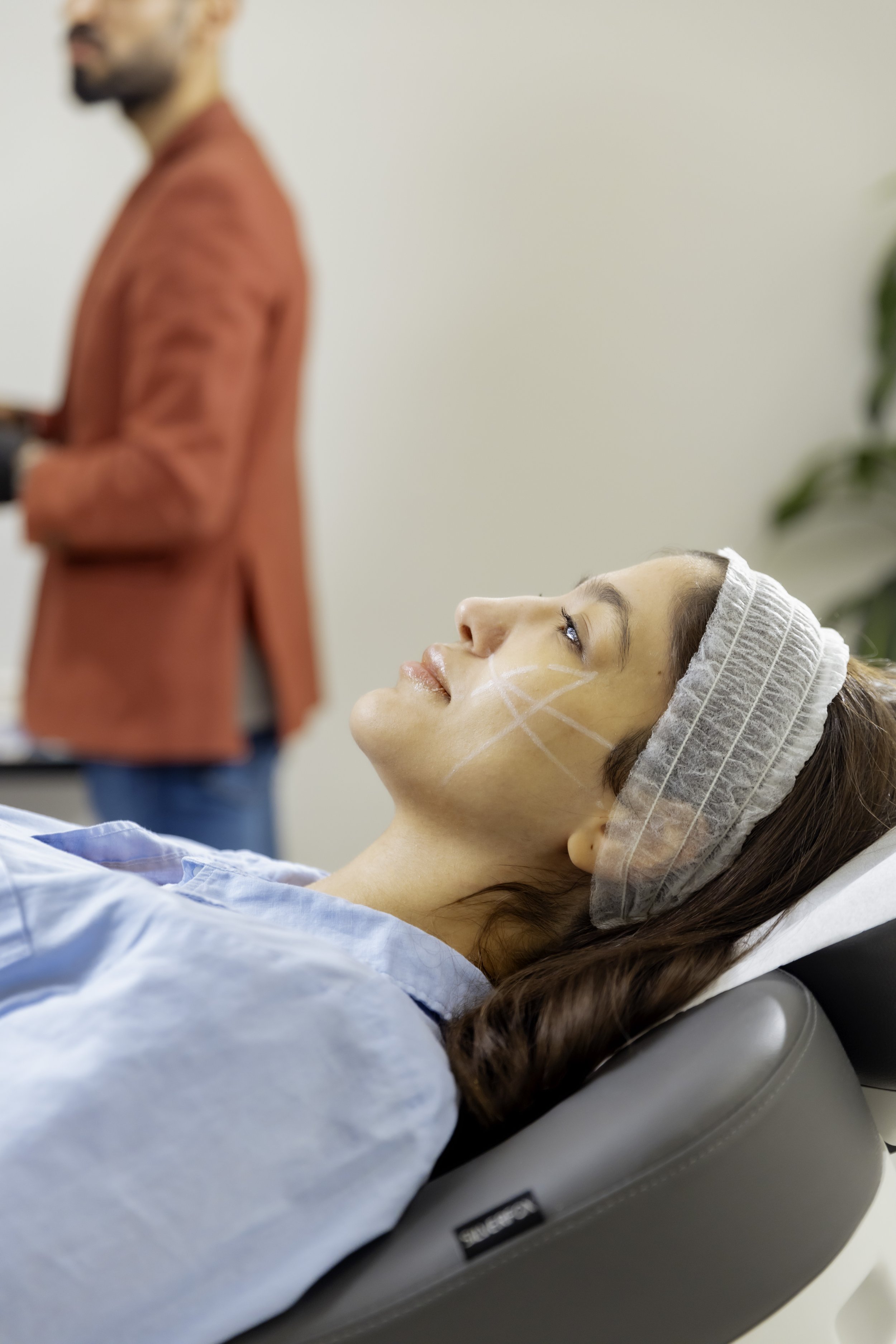
Collagen stimulators FAQ’s
What are collagen stimulators?
Collagen stimulators, sometimes referred to as bio stimulators, are a class of semi-permanent dermal fillers that improve skin structure and restore facial volume by inducing the body to produce more collagen. Fit for. Skin tightening, volume loss, thinning skin, and natural facial augmentation.
How long does the treatment take?
Depending on the treated area, however it is a 30 minutes procedure.
What should I prepare before session?
It is ideal to stop any medication that causes bleeding in addition anti-inflammatory medications such as (Ibuprofen, Advil, Aspirin) 1 week prior to treatment.
Stop any peeling, whitening creams, products containing salicylic acid and retin-A 5 days before your session.
If you have a history of cold sores you need to take anti-viral medication the day of your procedure and continue for 5 days.
When can I see the results?
Some results are immediate, such as improvement of the skin texture, nevertheless, Improvements will continue for a maximum of 12 months. It takes months for the production of new collagen and elastin to reach its peak.
How many treatments session do I need?
It varies depending on the type of collagen stimulator your doctor used; however, it varies from 1-4 with intervals of 4-6 weeks.
The results last from 18 to 24 months where you might need maintenance session.
What do I have to do after my treatment session?
Keep the area clean and avoid contact with contaminants.
You may use moisturizer, sunscreen and make-up 24 hours after the treatment if your skin looks healed.
Avoid vitamin A for 2 weeks.
Massage the treated area if needed as prescribed to you by your doctor.
Are there any side effects?
Like any other procedure, side effects are possible such as redness, swelling, rash, lumps and nodules. Most inflammatory signs will subside withing a week, in case it last longer, contact your doctor.
What are contraindications of collagen stimulators?
Pregnancy and lactation
Current infection
Immunosuppressed and autoimmune diseases
